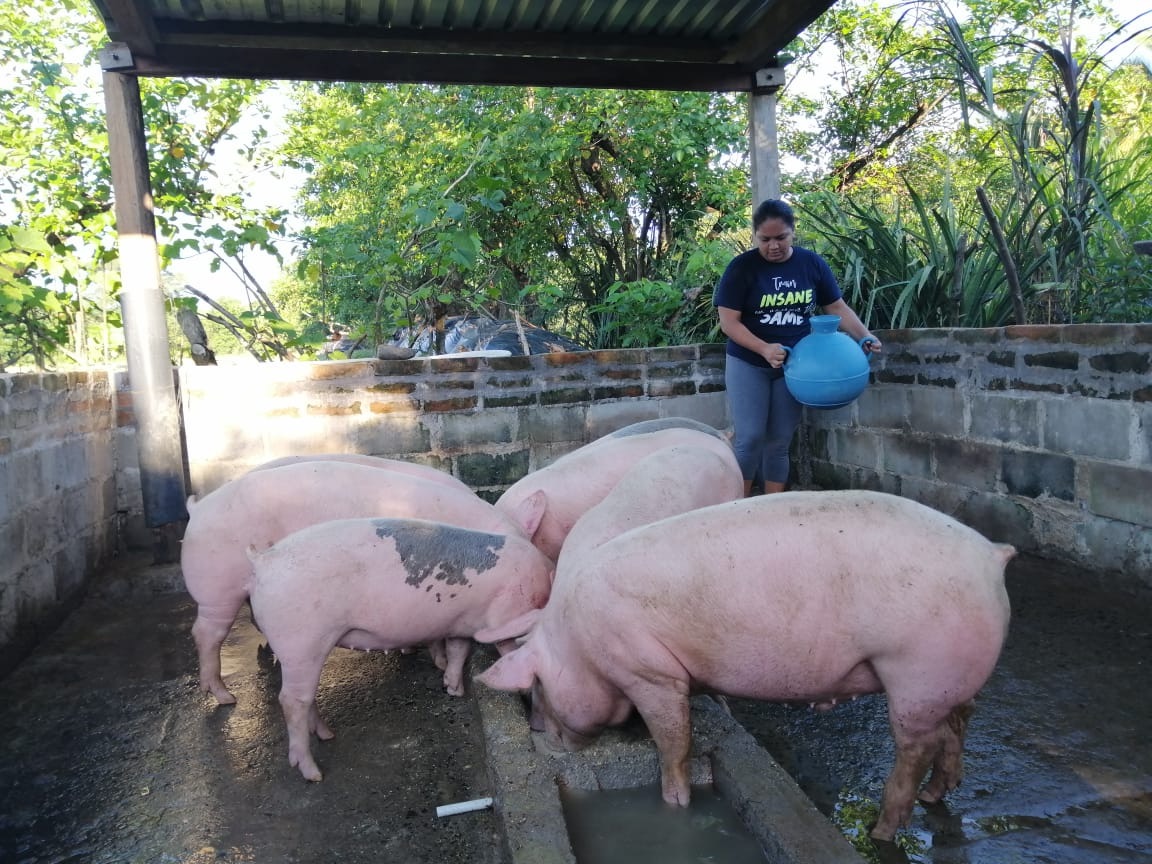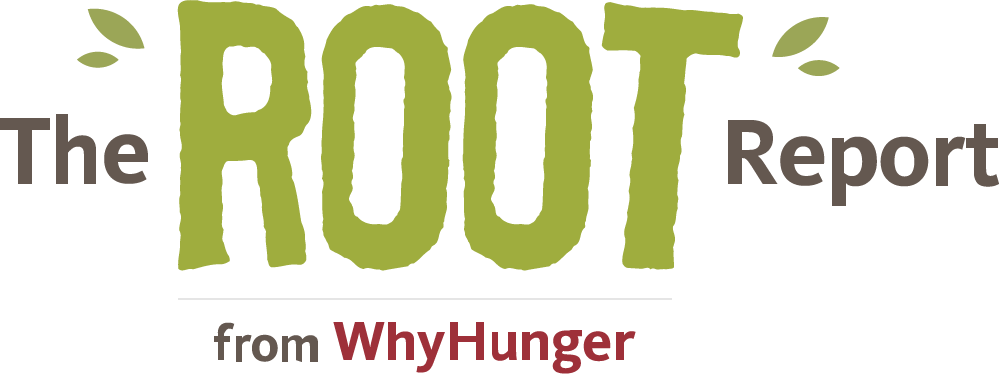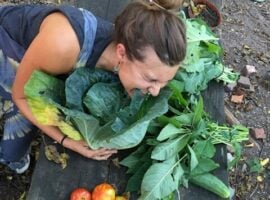A collective of 30 women farmers in rural El Salvador called The Cooperativa de Producción Agropecuaria y Servicios Múltiples Mujeres Obrajuelences (ACOPAMO) is dedicated to using agroecological food production to help women and their families thrive.

Building on their success raising chickens for meat and market, ACOPAMO established a pork production pilot project in 2020 to teach women how to care for pigs and create their own small-scale pork operations that can supplement local families’ diets and generate additional income. Through this work, they are providing women with the tools they need to become financially independent, give local families better access to nutritious food, and create a strong place for women in El Salvador’s agriculture sector.
ACOPAMO knows that women have the power to completely transform their communities.
These new skills and resources mean more ways for women to provide for their families. Current political and economic crises in El Salvador, combined with hardships brought on by the pandemic, make the need for female leadership even more necessary. Thanks to this new pig operation, women can generate income in a way that is safe for the environment and beneficial to their community. At the moment, ACOPAMO is producing 300 poultry and 14 pigs for every production cycle. They are working to expand their operation to:
- Double their production of pigs and poultry, expand infrastructure, and begin raising piglets from birth
- Purchase a vehicle to help transport supplies and deliver product orders to local areas
- Open a storefront to sell their pork & poultry products
- Purchase materials to package their products and sell individually
ACOPAMO is dedicated to building capacity among women to create resilient food and economic systems that will sustain them long-term and help weather future crises. Support ACOPAMO’s investment in female autonomy this Women’s History Month. Please reach out to us at [email protected] learn more about ACOPAMO and their work.






